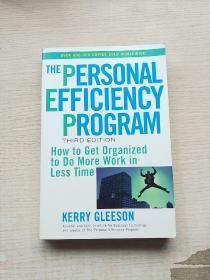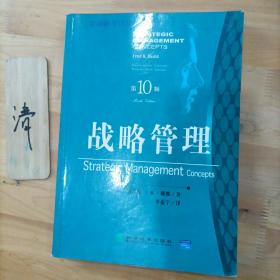
The Efficiency Paradox: What Big Data Can't Do
¥ 85 7.0折 ¥ 121.7 九五品
仅1件
作者Edward Tenner 作者
出版社Knopf
出版时间2018-04
装帧精装
货号75bf
上书时间2024-11-25
- 最新上架
商品详情
- 品相描述:九五品
图书标准信息
- 作者 Edward Tenner 作者
- 出版社 Knopf
- 出版时间 2018-04
- ISBN 9781400041398
- 定价 121.70元
- 装帧 精装
- 开本 其他
- 页数 320页
- 正文语种 英语
- 【内容简介】
-
A bold challenge to our obsession with efficiency--and a new understanding of how to benefit from the powerful potential of serendipity
Algorithms, multitasking, sharing economy, life hacks: our culture can't get enough of efficiency. One of the great promises of the Internet and big data revolutions is the idea that we can improve the processes and routines of our work and personal lives to get more done in less time than ever before. There is no doubt that we're performing at higher scales and going faster than ever, but what if we're headed in the wrong direction?
The Efficiency Paradox questions our ingrained assumptions about efficiency, persuasively showing how relying on the algorithms of platforms can in fact lead to wasted efforts, missed opportunities, and above all an inability to break out of established patterns. Edward Tenner offers a smarter way to think about efficiency, showing how we can combine artificial intelligence and our own intuition, leaving ourselves and our institutions open to learning from the random and unexpected. - 【作者简介】
- EDWARD TENNER is a distinguished scholar of the Smithsonian's Lemelson Center for the Study of Invention and Innovation and a visiting scholar in the Rutgers University Department of History. He was a visiting lecturer at the Humanities Council at Princeton, and has held visiting research positions at the Institute for Advanced Study and the University of Pennsylvania. His essays and reviews have appeared in The New York Times, The Washington Post, The Wall Street Journal, The Atlantic, The Wilson Quarterly, and Forbes.com, and he has given talks for many organizations, including Microsoft, AT&T, the National Institute on White Collar Crime, the Smithsonian Associates, and TED. His book, Why Things Bite Back: Technology and the Revenge of Unintended Consequences, written in part with a Guggenheim Fellowship, has been translated into German, Japanese, Chinese, Italian, Portuguese, and Czech.
相关推荐
-

THE PERSONAL EFFICIENCY PROGRAM
九品武汉
¥ 86.00
-

The PERSONAL EFFICIENCY PROGRAM
九品北京
¥ 50.00
-

THE EFFICIENCY PARADDX EDWARO TENNER
九品北京
¥ 118.00
-

THE PERSONAL EFFICIENCY PROGRAM THIRD EDITION
九五品廊坊
¥ 38.00
-

IMPROVING SCHOOL EFFICIENCY THE ASIAN EXPERIENCE
九品北京
¥ 98.00
-

energy efficiency:The other alternative fuel
九品北京
¥ 100.00
-

Energy Efficiency(The Other alternative Fuel)
九品北京
¥ 108.00
-

The sow-improving her efficiency
八五品孝感
¥ 158.00
-

the efficiency of capital allocation 2062
八五品北京
¥ 46.00
-

THE HIGH TECH PERSONAL EFFICIENCY PROGRAM
九品衡水
¥ 20.94
— 没有更多了 —




















以下为对购买帮助不大的评价